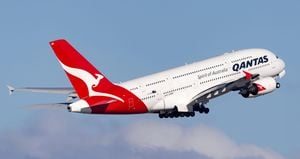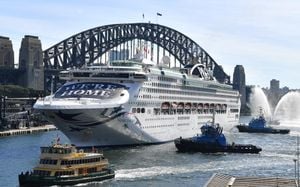Borussia Dortmund, once touted as potential title contenders, is now embroiled in tumultuous internal conflicts and dismal performances on the pitch, with leadership tensions reaching new heights.
After the announcement of Lars Ricken as the new Sport-Geschäftsführer and Sven Mislintat stepping back onto the scene as Technischer Direktor, Borussia's CEO Hans-Joachim Watzke expressed hope during their May press conference: "Each of them, who radiate certain qualities, also carry egos. If the three can manage to work constructively and trustingly under Lars’ leadership, we have a huge chance. I hope they make it work — but it's also possible it won't succeed.” Unfortunately, it seems the latter is manifesting as the club struggles under their leadership.
Since their reunion, discord has become their new norm, particularly between Mislintat and Sportdirektor Sebastian Kehl, as the team continues to falter on the field. Recent reports indicate Mislintat's return has ushered in not just familiar faces but also conflict, as he was reportedly denied access to the training center, echoing the previous tensions with former coach Thomas Tuchel. The friction is palpable, as players like Nuri Sahin publicly call for accountability following their latest 2-4 loss to Kiel. Meanwhile, Mislintat is said to be jockeying for Kehl’s position.
Despite Ricken's attempts to steer the ship, it is clear the leadership is divided. An internal firing last November left Kehl reeling, losing significant support as colleague and confidant Eduard Graf was dismissed. Sources indicate Mislintat has expressed disdain not only for Kehl's extension but also for Ricken's decision-making inadequacies, creating mistrust. He allegedly blames Kehl and Sahin for the team's lacking on-field performance.
Dortmund’s recent games have been disappointing and alarming, with their fourth consecutive defeat occurring just last week at the hands of Bologna, leading to Sahin being just one defeat away from the exit door. "Of course — Nuri knows, we all know — we need victories and successes," Ricken stated, observing his staff's growing concerns. Yet, the loss was another worrying indication of the pervasive issues affecting both player morale and coaching strategies.
The mounting chatter indicates Lille's Dallinga took full advantage of Dortmund's defensive lapses, scoring within seconds of each other, marking yet another failure for Sahin and the coaching staff. The current undercurrent of frustration is not just about performance but exacerbated by visible dissent among players. The club's leaders are aware of the mental health concerns creeping through the ranks — their recent series of performances offering very little respite to fans or players alike.
To be sure, Dortmund’s management is wrestling not just with onfield troubles, but also with significant ownership concerns and player development conflicts. Transfer decisions seem to be influenced by conflicting interests; for example, players have reportedly been chosen not for collective performance needs but rather due to individual relationships held by those making the decisions.
The recent string of poor performances raises questions about the effectiveness of Kehl's leadership as well as the strategic direction of the club as it grapples with whether to retain or oust head coach Sahin. Simply put, should results not improve, Kehl's position could very well come under jeopardy, as noted by Watzke's remarks validating both Ricken’s and Sahin’s standings. All the uncertainty permeates the atmosphere, as even decisions once made autonomously now undergo scrutiny from multiple executives.
Alluding to the team’s faltering performance, fans are understandably frustrated, speculating whether leadership voids will shape the future of the club’s ambitions. The toxic environment has stagnated progress, prompting questions about relationships with agents and players alike. Decisions historically made to bolster the squad now find themselves mired within bureaucratic discord.
Establishing clarity moving forward proves challenging, with many believing Mislintat's aspirations for the Sportdirektor role stem from internal conflicts where the ability to affect change appears near impossible. On several fronts, sacrifices might need to be made, as players like Emre Can and Niklas Süle, initially viewed as pivotal cogs, have only underlined the failures wrought by indecision.
To truly recover, Borussia Dortmund must not only confront their performance issues but also mend its fractious leadership structure. All eyes will continue to focus on how the organization resolves its internal strife and whether needed changes can be made swiftly enough to salvage their season.



